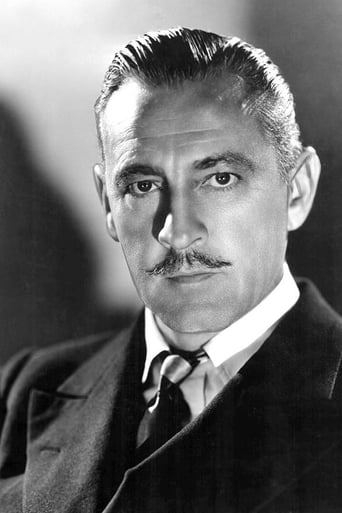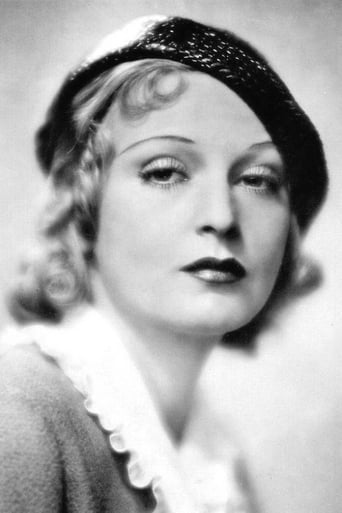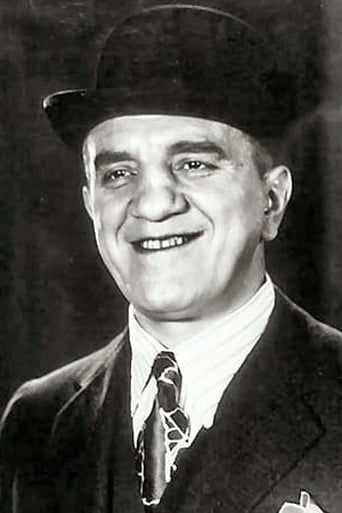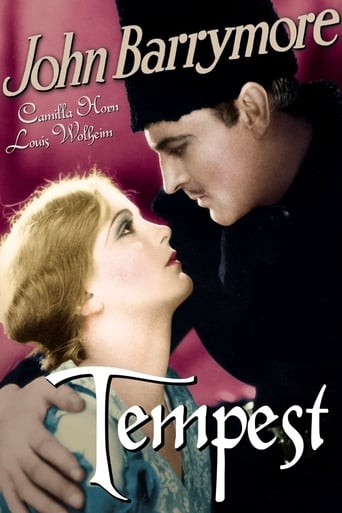
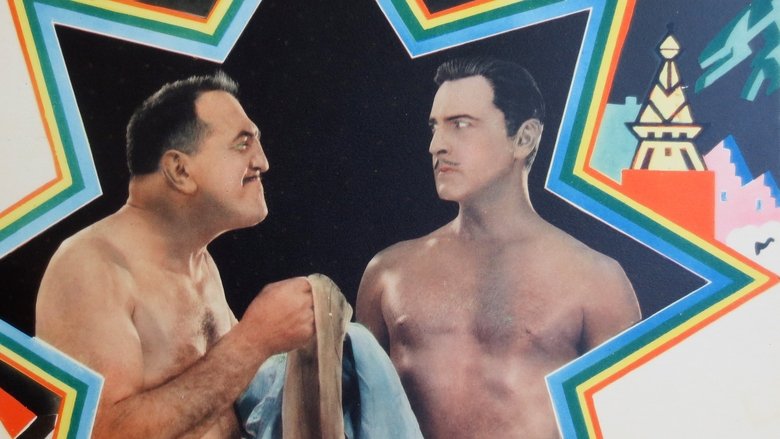
Tempest (1928)
In the final days of Czarist Russia, a peasant is raised from the ranks to Lieutenant. The other officers, aristocrats all, resent him, and make his life difficult. He falls in love with a princess, who spurns him. When he is caught in her room, he is stripped of his rank and thrown into prison. Then comes the Red Terror, and the tables are turned.
Watch Trailer
Cast


Reviews
This movie is the proof that the world is becoming a sick and dumb place
The Worst Film Ever
Sadly Over-hyped
Awesome Movie
"Tempest" will be of interest to anyone who wants an example of John Barrymore's considerable screen presence. He's quite good as a star cadet culled from the ranks of the Russian peasantry whose fortunes take a turn for the worse when he falls foul of his boss's daughter. The story is pure melodrama, with lots of arched eyebrows and swooning romantic embraces, but Barrymore pulls it off with flair, and there's something ahead of its time about his acting. It's natural in a way that a lot of acting in the silent era (and even for a while after) wasn't.The film overall is a bit saggy, and suffers from lugubrious pacing and static shots that linger past the point when they should. William Cameron Menzies won the first Academy Award given for art direction for his work on this film and another from the same award year, "The Dove," while Charles Rosher, who won the first cinematography Oscar for "Sunrise," provides the camera work. To be sure the film looks good, but it would have benefited from crisper editing.A not overly memorable film from the last days of the silents, but enjoyable for what it is.Grade: B
This is a neglected gem.! Amazing camera work, wonderful sets and art direction, and above all the great performance of John Barrymore make this a silent classic all film fans should see. Barrymore was a true master of the craft, and I wish there were many more of his performances available today. Those that are available have impressed me repeatedly. His reputation as one of the finest actors of his time was well deserved, and until late in his life, his talent shown through and survived the ravages of his personal demons. He really delivers on this film, in a more subtle and well-developed character than some of his other silent roles. The character undergoes a shift from fury to affection at one point, and he's magnificent here. The female lead is a bit wooden at times, but mostly hits her mark, first as arrogant, contemptuous, even cruel. The script doesn't give her much opportunity for redemption, but a softer side does emerge and she has eyes and a face that work well in silent cinema. The chaotic and vengeful culture in the immediate aftermath of the revolution is shown rather than alluded to or omitted, as are the cruelties of the aristocrat/peasant one before it. Some early film slants heavily to the "feel good" side, but this seems an honest treatment. It's just such a shame more folks don't appreciate silent films on their own merits, rather than trying to compare them to contemporary ones its like apples and oranges.
I can't wrap my mind around the fact that Barrymore was in his forties when he made this film. He looks fit and fantastic, the true matinée idol. This is due in no small part to Rosher's astounding photography. This is a crazy, obsessional soap that may turn some people off, but John B. has some beautiful, moving moments that give me goosebumps. He was clearly still able to give his all at this point, and he does so here. His tearful scenes are believable and so well done. Camilla Horn was stunning and looked great with him, but she's so wooden that it dulls the effect a bit. Still, she had a long career in Germany, so I guess she couldn't have been so bad. Ivan is one big grey area when it comes to morality, and Barrymore conveys that very well.I wish he could have pulled it together long enough to save his career and life from the self-parodying buffoonery that he sank into as he dissipated. He breaks my heart on many different levels.
TEMPEST (United Artists, 1928), presented by Joseph M. Schenck, directed by Sam Taylor, with uncredited work by Lewis Milestone, bears no relation to the William Shakespeare play, but is actually a military love story set against the background of the Russian Revolution in 1914. It stars the legendary "great profile" John Barrymore as Ivan Markov, a peasant soldier who becomes an officer in the Russian Army, after being told by his comrades that no peasant has been commissioned to a higher rank in years. After he and his officers take a swim in the lake with only their uniform trousers on, Sergeant Bubba (Louis Wolheim), Ivan's closest friend, who has encountered three young girls also bathing on the other side, as a practical joke, steals their clothing. After being told for what he has done, Ivan interferes in Bubba's meddling and takes the garments to return them to the ladies. As he is doing his good deed, Ivan is confronted by the Princess Tamara (Camilla Horn), who immediately accuses him of stealing the clothes. Quite upset, she suddenly takes Ivan's whip and beats his naked chest with it. In return, Ivan takes her into his arms and kisses her. Later that evening Ivan encounters Tamara once again at a social function, and learns that she is the daughter of his superior (George Fawcett), who loves Ivan like a son. Ivan and Tamara dance together, with Tamara doing nothing else but insulting him. Afterwards, Ivan then drowns out his sorrows by stocking up on wine in a huge drinking glass and gulping it all down at once. Now drunk, Ivan loses himself and accidentally stumbles upon Tamara's bedroom where he proceeds to fall asleep on her couch. After being discovered there, Tamara calls for her father and her suitor (Ullrich Haupt), which then puts an end to Ivan's military career as he is stripped of his uniform and sentenced to serve five years in prison. After the outbreak of the war, the calvary and the other prisoners are ordered to the front, which leaves Ivan behind in solitary confinement, as ordered by Tamara's suitor. Released by an insane communist peddler (Boris De Fas), Ivan joins forced with him to become an important official while Tamara and her father are no longer aristocrats in high social standing. Now that Ivan is in control, will he treat her as unjustly as he was misjudged by her? TEMPEST, which plays like a proposed project for Rudolph Valentino, who has since died in 1926, offers John Barrymore in one of his finer performances of the silent screen. Camilla Horn, a blonde beauty recently imported from Germany, makes her Hollywood movie debut in this production. Before returning to her native Germany, she was re-teamed one more time with John Barrymore in the silent drama, ETERNAL LOVE (United Artists, 1929).Presented in the supporting cast are Michael Visaroff, Lena Malena and Michael Marke. Louis Wolheim provides his usual comedic moments as Ivan's loyal friend, while Ullrich Haupt adds to his villainy as Tamara's jealous suitor. George Fawcett, the familiar face from numerous DW Griffith silents of long ago, gives his usual reliable performance as the Russian general who would later find himself facing a firing squad. And then there is not so well known Boris De Fas, menacing, sinister and gap-toothed who somewhat resembles John Barrymore's evil side of his other personality from his own version to the 1920 horror film, DR. JEKYLL AND MR. HYDE. This is his only known Hollywood screen role. TEMPEST, with the running time of 104 minutes, was originally released theatrically with a synchronized musical score by Hugo Riesenfeld. It became one of the twelve selected films to appear during the summer months on New York City's public television Channel 13's 1975 presentation of "The Silent Years" as hosted by Lillian Gish, accompanied by another excellent piano score by William Perry from the Paul Killian collection. Before its presentation, Gish talks about the beautiful photography by Charles Rosher as well as the lavish sets by William Cameron Menzies. Besides these fine assets, TEMPEST includes several fine dramatic moments by Barrymore: One in which Barrymore's Ivan becomes very teary-eyed as he is disgraced in front of his regiment, stripped of his uniform with his sword broken in half by a superior, and another in which Ivan, nearly going insane while being left in solitary confinement, surrounded by those high prison walls, only to look up on one of those walls and imagining the face of Tamara looking down at him, but as for John Barrymore's earlier drunken scene, for him that must have been a natural.Like many silent films distributed around 1928-29, TEMPEST has become underrated and forgotten due to lack of television or any other kind of revival over the years. It was distributed on video cassette in the 1980s through Blackhawk Video and Republic Home Video (Blackhawk's merger), accompanied by the William Perry piano score used for "The Silent Years" (1975). Distribution on DVD from Image Entertainment contains choices of underscoring: 1)Original 1928 orchestral score and 2) Piano accompaniment by Philip Carli. (***)


